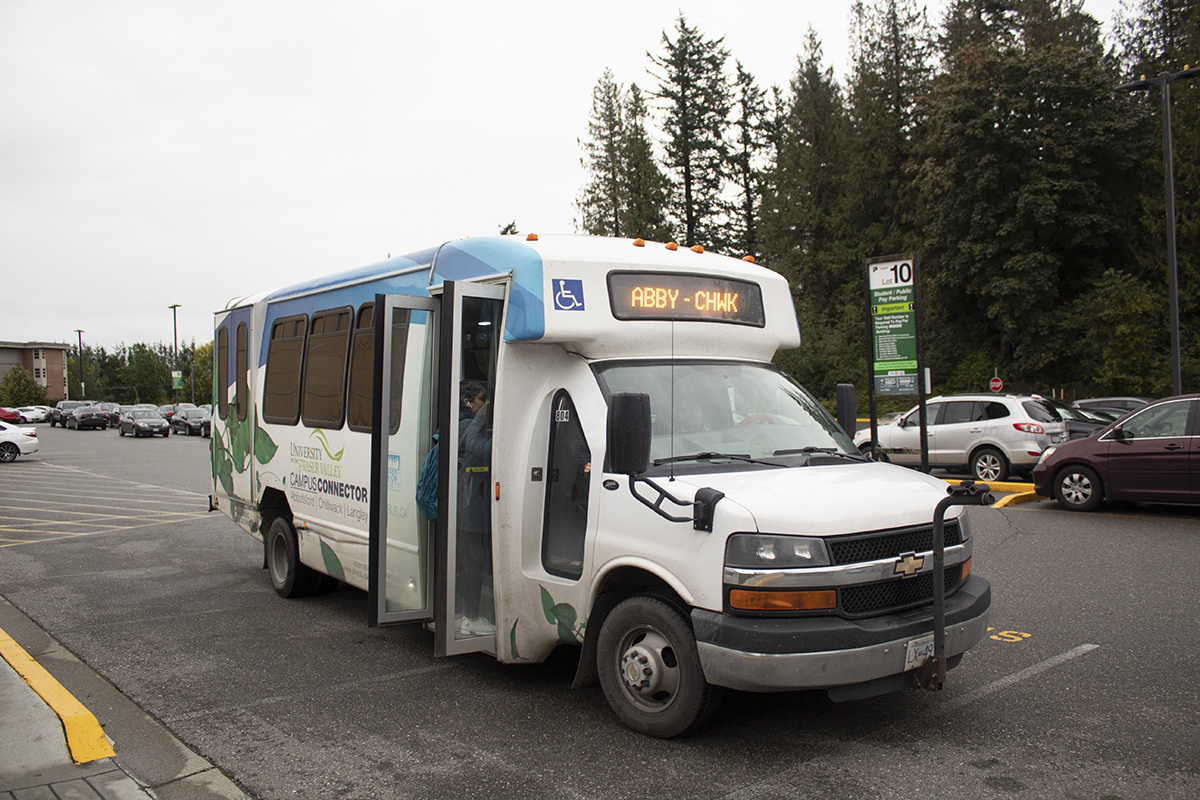The Student Union Society (SUS) is holding a referendum to increase shuttle bus fees by up to 30 per cent.
The fee increase is necessary; the shuttle bus has become essential for students as it connects UFV’s two largest campuses, and it is currently running at around a $100,000 deficit. However, providing this service should not be the student union’s responsibility; it should fall to the university to organize and provide services students need to attend class and complete their degrees.
UFV is a multi-campus university. Many programs offer classes on all three of our main campuses, requiring students to commute between campuses that have limited public transport options. Providing equal services and developing student culture on all campuses has been a continuous concern for UFV in recent years, something that easy movement and a physical connection between the campuses certainly helps.
The shuttle buses are continuously packed and issues have been ongoing, with sudden changes to the schedule, limited capacity, and generally ineffective communication between SUS, students, and the contracted company. SUS does not have the resources to run this service, nor should it have to.
Student unions in Canada have devolved into service-providing bureaucracies: maelstroms of mismanagement that suck in money and spit out half-baked engagement and advocacy plans. Their resources are being put toward the creation and maintenance of services such as health plans, transit passes, and, in the case of our student union, shuttle services.
Student unions were originally created to act as a collective voice of students on campus, and advocate for individuals and groups on matters of academic significance. In most of the world they have evolved but maintained this original mandate. The majority of student unions worldwide are not providers of services in the same way B.C. ‘s are; advocacy is still a high priority, both at national and university levels, as is running extra-curricular activities and supporting smaller groups similar to our Clubs and Associations. Even the running of student union buildings, which often house important student organizations, food services, clinics, and campus bars, is not an insignificant task.
Currently at SUS, less than 1.3 per cent of their 2019/20 operating budget is dedicated to funding student-run events and only 3.8 per cent is set aside for SUS-run programming. In the 2018/19 financial statements, only $23,013 was spent on conference and travel (which is generally for advocacy work) and $67,729 for events, which accounted for a measly two per cent of their total expenditures.
SUS resources are not going where they should be, yet they’re going where students need them to be. If a student can’t get to their own university’s campuses, they can’t access the classes that they need. If they need to work to save for dental surgery or are in pain from an untreated cavity, they’re going to have trouble attending school. While these are things student unions should be addressing, it should be through advocacy. If this were the case, SUS could more effectively approach multiple issues rather than sinking their money into huge, singular problems.
The university’s unwillingness to shoulder these responsibilities, which should never have fallen on SUS, has made SUS stagnant. Instead of being able to innovate and press for change, SUS is stuck providing essential services.
UFV needs to step up, and SUS needs to advocate for them to do it.
Image: The Cascade


